English
Twinkl Phonics
- Levels 3,4 & 5 (Youtube Link)
Reading – VIPERS
- Vocabulary, Inference, Predicting, Explaining, Retrieval & Sequencing.
Grammar/Punctuation
- Punctuating speech
- Join words and clauses using ‘and’, ‘but’, ‘because’ etc.
- Understand spelling rules for adding ‘s’ and ‘es’
- Use suffixes -ing, -ed, -er and -es.
Writing
Traditional Tales:
- Setting Descriptions
- Character Descriptions
- Retell
- Dialogue
- Playscripts
Maths
White Rose
- Numbers to 20, and then 50.
- Place Value within 20, and then 50.
- Addition & Subtraction to 20, and then 50.
- Shape/Geometry Review (2D & 3D)
- Word and multi-step problems
Resources
Children will continue to familiarise themselves with a range of tools to assist them including:
- Ten frames
- Part-part-whole models
- Place value charts
- Cubes, counters, bead strings, abacus etc.
Science
Seasonal Changes
This project teaches children about the seasons, seasonal changes and typical seasonal weather and events. They learn about measuring the weather and the role of a meteorologist. Children begin to learn about the science of day and night and recognise that the seasons have varying day lengths in the UK.
Computing
Programming Toys
In this unit about programming toys, children will be introduced to the principles of programming through unplugged tasks and the use of Bee-Bots (or similar programmable toys). They will be introduced to algorithms as a set of step-by-step instructions given to a device, will learn how to debug simple algorithms and how to use logical reasoning to predict how a program will behave.
History
Not taught this term
Geography
Bright Light, Big City (Cornerstones)
This project teaches children about the physical and human characteristics of the United Kingdom compared with Athens, including a detailed exploration of the characteristics and features of the capital cities.
Greek
Adv: Phonics: Ζ,Υ,Ου,Β,Δ,Ω, form and read short phrases, practice the use of the endings ‘ι’, ‘η’. ‘ο’, ‘ω’, spell common exception words and numbers to 20, enjoy fairy tales in Greek and participate in discussions about our core text.
Beg.: Food and Drink, Body Parts, and stories, rhymes, songs, playground games, crafts relevant to the topics.
Greek Culture
Greek Traditions and Customs 1
Traditions and customs through stories and events:
- The story of Vasilopita, Thessaloniki and the story of St Demetrios
- Traditional food, musical instruments, dances and costumes
Music
- Beginning to develop music notation skills
- Designing the treble clef and the bass clef on the staff lines
- Singing short duration songs with melody extended to the range of a 3rd.
- Introduction to the use of body as a musical instrument (body percussion)
Art & Design
Fabricate (Weaving & Nature Sculptures)
- Art- Batik / Paper weaving
- Land Art- Andy Goldsworthy, nature portraits, collages & mobiles
- DT (sewing)- Fabric weavin.
PE
Fundamental Movement Skills (FMS)
- Travelling and Movement Concepts
Ball Skills
- Throwing and catching different types of ball
- Kicking different types of ball
- Controlling different types of ball
Values
- Fair play
- Respect
PSHE
Aiming High
Children will learn about having high aspirations. Opportunities will also be provided for children to share aspirations for the future, with regard to employment and personal goals. Through this learning, different jobs and roles will be considered. In doing this, some of the difficulties faced by stereotyping will be explored.
How can you help at home?
- Spend time outdoors exploring the seasonal changes. Discuss what happens in Spring. What can you see, smell, taste, touch and hear?
- Practise counting to, from and through 50. Practice quick-fire Maths such as number bonds to 20, one more/less and ten more/less.
- Keep practising gross and fine motor skills through activities such as sewing, chores, outdoor play etc.
